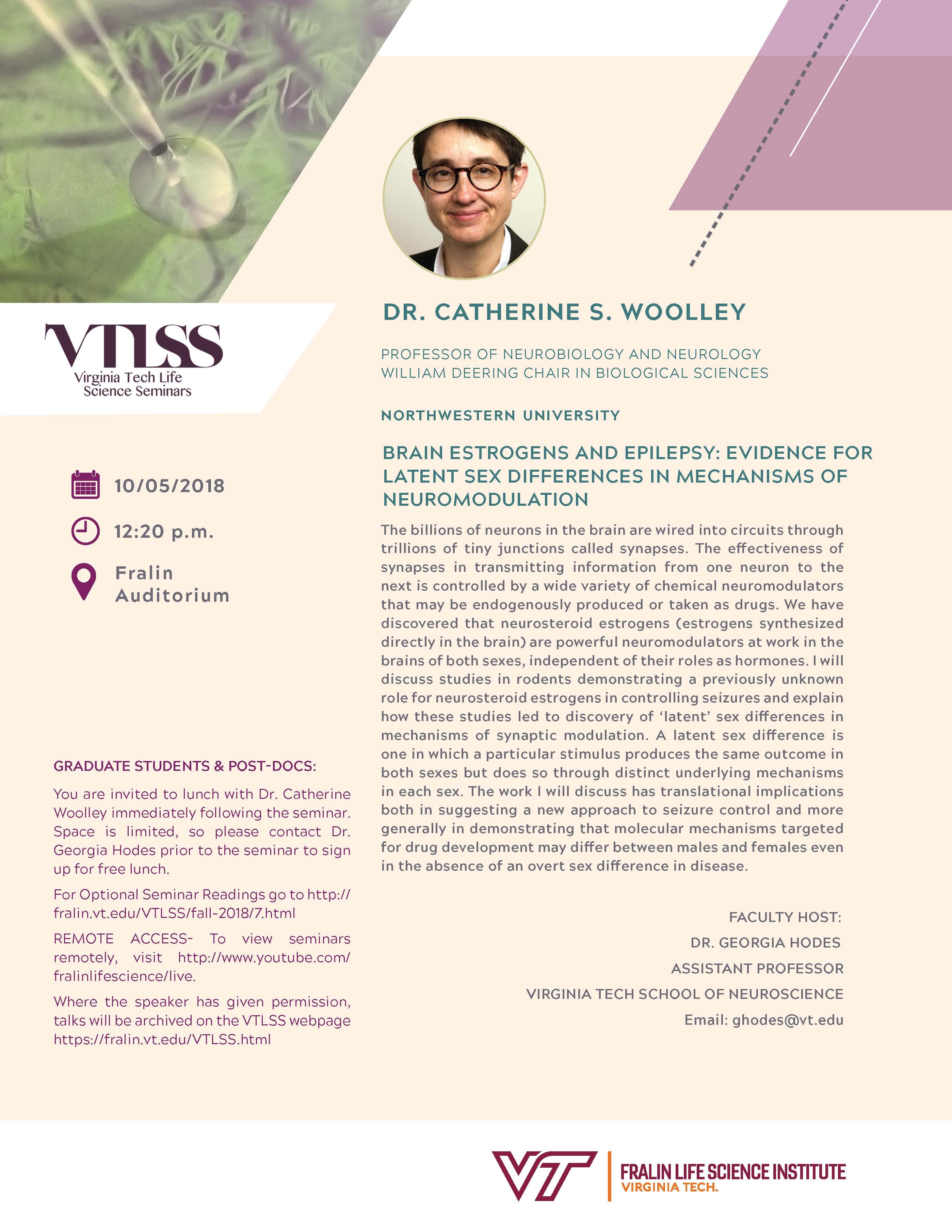Brain Estrogens and Epilepsy: Evidence for latent sex differences in mechanisms of neuromodulation

Dr. Catherine Woolley; Northwestern University
October 5 at 12:20pm in the Fralin Auditorium, Fralin Hall room 102
Hosted by Georgia Hodes
Catherine S. Woolley, PhD is the William Deering Chair in Biological Sciences and Professor of Neurobiology and Neurology at Northwestern University. She received her PhD from Rockefeller University in 1993 where she worked with Bruce McEwen and completed postdoctoral training with Philip Schwartzkroin in the Department of Neurological Surgery at University of Washington. In 1998, she moved to Northwestern as an Assistant professor. Since then, her work has been supported continuously by the National Institutes of Health (NINDS, NIDA, NIMH), as well as through the Alfred P. Sloan Foundation, the W. M. Keck Foundation, and the Northwestern University Women’s Health Research Institute. She is currently a Councilor of the Society for Neuroscience, a Senior Editor at The Journal of Neuroscience, and is the founding Director of Northwestern University’s undergraduate Neuroscience program.
Dr. Woolley’s research focuses on steroid modulation of synaptic structure and function in the adult brain, particularly in the hippocampus, with the aim of understanding how steroids influence hippocampus-dependent behaviors and neurological disorders that involve the hippocampus. Current projects focus on neurosteroid estrogens and the surprising discovery of ‘latent’ sex differences in molecular and circuit-level mechanisms operating in the brain.
The billions of neurons in the brain are wired into circuits through trillions of tiny junctions called synapses. The effectiveness of synapses in transmitting information from one neuron to the next is controlled by a wide variety of chemical neuromodulators that may be endogenously produced or taken as drugs. We have discovered that neurosteroid estrogens (estrogens synthesized directly in the brain) are powerful neuromodulators at work in the brains of both sexes, independent of their roles as hormones. I will discuss studies in rodents demonstrating a previously unknown role for neurosteroid estrogens in controlling seizures and explain how these studies led to discovery of ‘latent’ sex differences in mechanisms of synaptic modulation. A latent sex difference is one in which a particular stimulus produces the same outcome in both sexes but does so through distinct underlying mechanisms in each sex. The work I will discuss has translational implications both in suggesting a new approach to seizure control and more generally in demonstrating that molecular mechanisms targeted for drug development may differ between males and females even in the absence of an overt sex difference in disease.
This seminar has no suggested readings.

This seminar will NOT be livestreamed or recorded.


